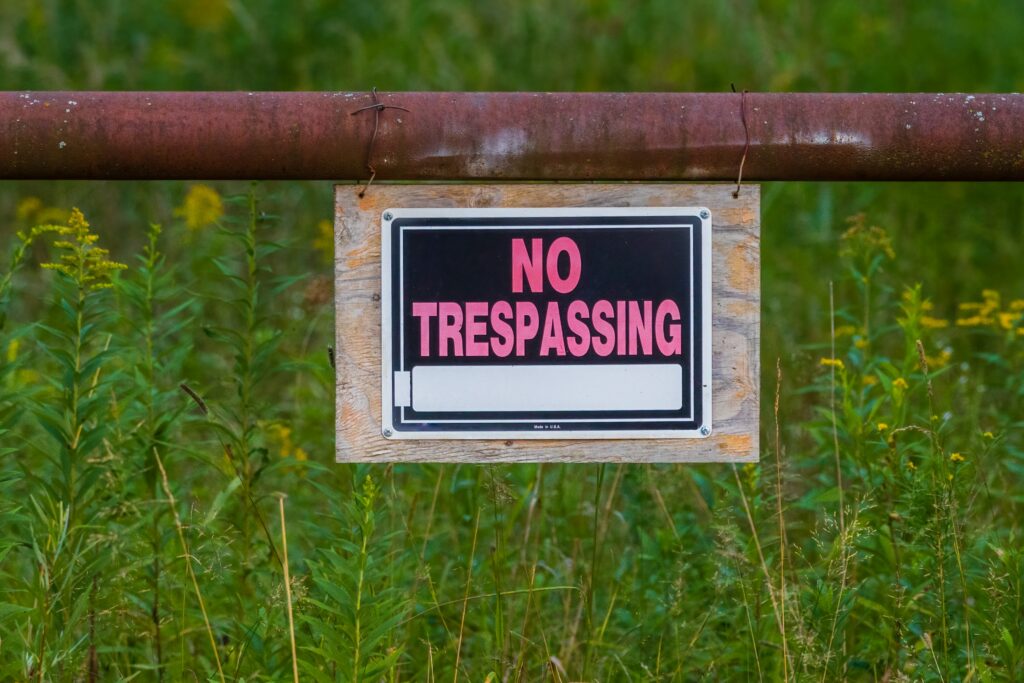
In the state of New Jersey, there are three different ways for someone to be charged with criminal trespass. All three statutes, however, should be taken seriously, as the consequences can be very real and even include jail time. Trespassing can be defined as entering a forbidden space or staying in a place long after permission has ended, although there is more to know than just that. It is important to understand criminal trespass so you don’t find yourself civilly and criminally charged and facing the consequences.
The Three Forms of Criminal Trespass
Similar to burglary, trespassing involves the unlawful entry onto the property of someone else. Although, unlike burglary, a trespasser will have no other criminal intentions. Instead, they’re just in the wrong place at the wrong time. In New Jersey, there are three distinct forms of trespassing that you can be charged with. This includes: Unlicensed entry of structure, Unlawful peering into windows, and Defiant trespassing. All three of these charges can lead to considerable consequences.
Understanding The Forms of Criminal Trespass
The first kind of trespassing, the unlicensed entry of a structure, refers to an individual entering or remaining in a structure without proper privilege or license. This is a disorderly persons offense, unless the crime is committed in any of the following:
- Dwelling
- Research Facility
- Waste Treatment Facility
- Power Generation Facility
- Water Treatment/Public Water Facility
- Public Sewage Facility
- Utility Company Property
- Airport Operational Area
- Nuclear Electric Generating Plant, or,
- Any facility which stores generated or handles hazardous chemicals or compounds.
If you’re caught trespassing on any of these kinds of properties, it is a crime in the fourth degree and the penalties will be much more severe.
The second form of trespassing, or peering into windows or other openings of a dwelling, is also a crime in the fourth degree. Lastly, defiant trespassing refers to the trespasser entering or staying in a specific place, despite being notified not to trespass. A notice can be in the form of a fence, oral warnings, or written signs, and violating these notices can lead to a petty disorderly persons offense.
Have A Proper Defense
While this was a brief overview that only touched on the surface of these laws, the seriousness of these charges should not be taken lightly. If you have been charged with trespassing, make sure you are rightfully represented by an attorney who knows the possible defenses and how to defend your rights given the circumstances. This is where we at Catanzaro Law come in. Our trained, experienced and knowledgeable attorneys know how to navigate a trespassing charge and understand the right defenses to help you get the justice you deserve. Don’t hesitate to contact us for a free consultation, and trust that you’ll be properly represented moving forward.